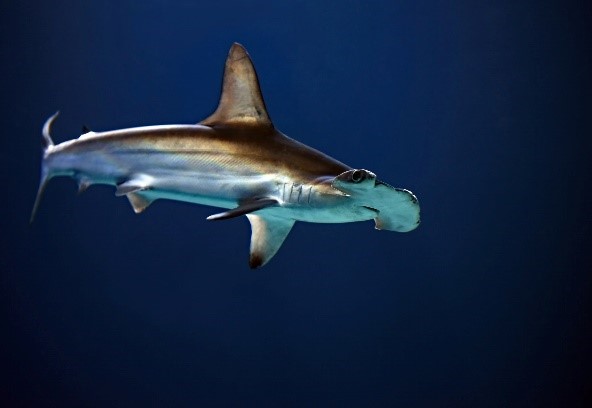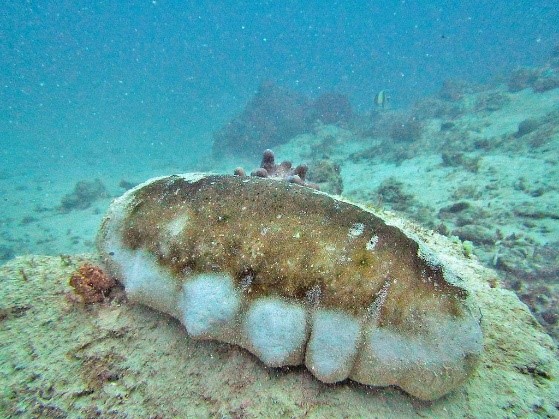The Food and Agricultural Organization of the United Nations (FAO) in collaboration with the Secretariat of the Convention on the International Trade in Endangered Species of Wild Fauna and Flora (CITES) has published a new sourcebook to support the implementation of CITES in the fisheries context, with a focus on national fisheries legislation and related legal matters.
The publication, titled “Implementing the Convention on International International Trade in Endangered Species of Wild Fauna and Flora (CITES) through national fisheries legal frameworks: a study and a guide”, was developed as part of the FAO-CITES collaboration, funded by the European Union (EU), and produced by the Development Law Service (LEGN) of FAO’s Legal Office together with FAO’s Fisheries and Aquaculture Department and the CITES Secretariat. It is available in English on the websites of CITES and FAO.

Hammerhead shark (Sphyrna spp., App II).
The sourcebook contains a comprehensive study explaining the relevant aspects of CITES implementation in the fisheries sector and a guide to be used by legal practitioners and decision-makers wishing to review and enhance their fisheries legislation in line with CITES requirements.
The Study explains the relationship between the Convention and the fisheries sector, particularly regarding the listing of commercially exploited and managed aquatic species in CITES Appendix II. It also clarifies the relevance for fisheries of various CITES provisions and obligations, such as those that apply during an introduction from the sea (IFS), and other trade requirements or tools such as non-detriment findings (NDFs), legal acquisition findings (LAFs) and voluntary export quotas.
The Guide, in turn, draws on the existing work of the CITES Secretariat under the National Legislation Project and elaborates further on how key elements of CITES could be applied in fisheries legislation, providing legislative options for implementing CITES through national fisheries legal frameworks.
The full sourcebook, which is based and builds on a background paper prepared by LEGN and presented at an expert’s workshop in May 2019, has been subjected to a peer-review process coordinated by the GreenLaw Foundation.

CC license picture: © Frédéric Ducarme / CC BY-SA
The need for such a document became urgent as a growing commercial market for marine species caused increased concerns for the conservation status of such species, in turn leading to the inclusion of some of these species in the CITES Appendices.
Notable examples of this trend include the listing in Appendix II of the silky and thresher sharks during the 17th Meeting of the Conference of the CITES Parties (CoP17) in 2016. At the 18th Meeting, three years later, Parties listed a wide range of marine species in Appendix II, including 18 more species of sharks and 3 valuable teatfish species of bechdemer (Holothuria fuscogilva, H. nobilis and H. Whitmaei).
"The effective implementation of CITES provisions for prized marine species can be challenging, as it involves valuable specimens that are often the basis for fishing industries that employ many people. Tools like this new sourcebook can aid Parties, their agencies and officials, as well as traders and actors from the fishing industries, to enhance implementation of the Convention in a way that can serve its long-term conservation objectives and ensure the sustainable livelihoods of those who depend on these listed species," said CITES Secretariat legal officer Sofie H. Flensborg.
"As CITES regulations now apply to a greater number of commercially valuable species, the objective of the sourcebook is to bridge the apparent gap existing between, on the one hand, the communities involved with implementing CITES and on the other, fisheries management entities, with a view to promoting their interaction" says Blaise Kuemlangan, co-author and Chief of the Development Law Service of FAO.
For more information, please contact:
CITES Secretariat: Francisco Perez (francisco.perezgonzalez@cites.org)
FAO, Development Law Service: Blaise Kuemlangan (Blaise.Kuemlangan@fao.org)
FAO, Fisheries and Aquaculture Department: Kim Friedman (Kim.Friedman@fao.org)